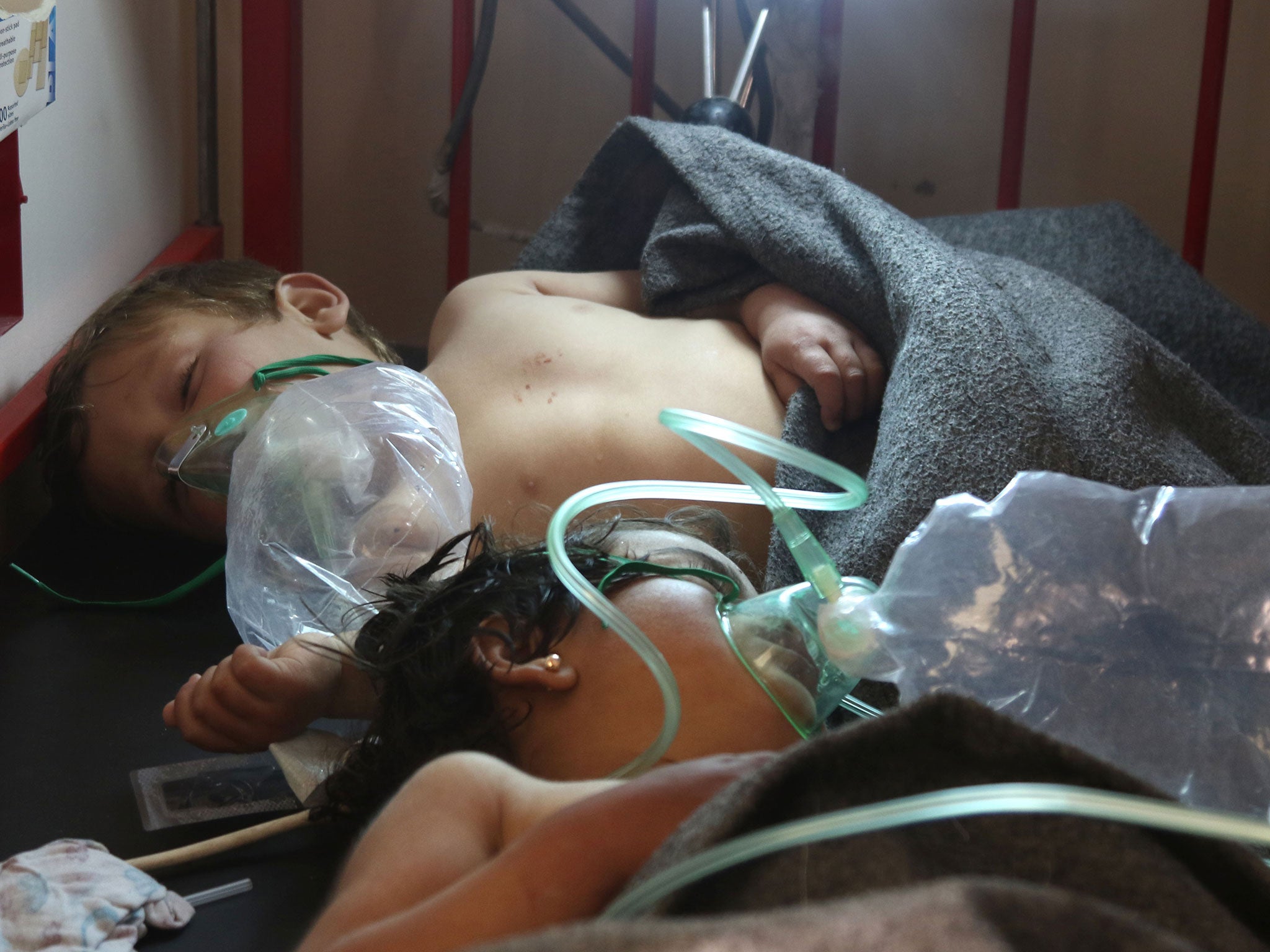When their hospitals are bombed so often, doctors in Syria need to start taking drastic action
In World War Two, we built underground hospitals, and that trend has continued in modern-day Israel

With this protracted war dragging its feet, the need for healthcare is perhaps greater in Syria than anywhere else in the world. Pictures of people convulsing and foaming at the mouth after an apparent poison gas attack this week leave us paralysed.
The Syrian healthcare paradox is that there is a phenomenal demand for medical staff and facilities, but the very reasons for this high demand are the same reasons for a lack of supply. Syrian health facilities were attacked more than 250 times in 2016. Even the most zealous of aid workers would take a step back in such a dangerous situation. Health facilities can barely operate when they are sitting in the middle of a conflict zone, but when they are seemingly intentionally being attacked, they cannot function at all.
The only real solution to this, of course, is a political one, marking the end of conflict. But six years later, while intransigence prevails at the diplomatic table, the sun is not yet close to setting on this war. With the West becoming increasingly peripheral, and hospitals still in the firing line, how can healthcare in Syria survive?
There are some available solutions. Underground hospitals were used in World War Two to protect patients and staff from aerial bombing. And there are numerous hospitals in Israel which have the capability to move underground in times of aerial warfare, where car parks can be quickly converted into hospital facilities. Indeed, in Aleppo hospitals have revisited this idea and started to move core functions underground.
This seemingly basic tactic could prove crucial to the survival of many in Syria. The foremost challenge will be to establish and execute a coherent nationwide plan, which is unlikely to come from the United Nations since Russia has been implicated in many health facility attacks. In reality, we may see a more piecemeal adaptation of facilities, led by existing hospitals alongside local NGOs and international aid agencies.
Another option is to restructure the system. A few large hospitals in a city are bulls'-eye targets for aerial attack, and if hit, a sizeable chunk of local healthcare infrastructure disappears instantly. Many small, community-based clinics and urgent treatment centres, however, are more difficult to strike, and if one is attacked, there are several nearby to provide cover.
An accelerated version of what has taken place in many developed countries over the past few years – moving care into the community – could help preserve the safety of healthcare workers. Of course, such a model would take a great deal of time, money, and expertise to execute. Decentralising like this may also be expensive in the long run, since healthcare providers will no longer be able to capitalise on economies of scale. Nevertheless, with international backing, this could prove effective even if on a small scale, in regions at particularly high risk of attack.
The healthcare system in Syria is already at its knees. As we watch the ongoing melange of death, chaos, and fear, it is tempting to think that there is nothing more that can be done. This is not the case; any little remaining capacity must be, and can be, preserved.
Now is the time to support healthcare workers, not abandon them. Health facilities are the last line of defence for the Syrian people. International actors including governments and NGOs must take radical and coordinated steps to ensure that healthcare, currently a prisoner of war, does not turn into a fatality of war.

Join our commenting forum
Join thought-provoking conversations, follow other Independent readers and see their replies